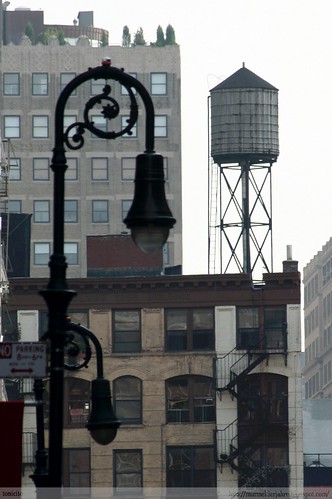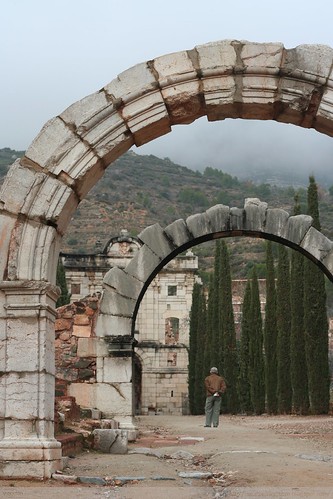A week ago, our computer started showing signs of sickness: blue screens of death, random behaviour, etc. After trying recovering her the whole week, reinstall the operating system, seeing that it would not help, despairing a little bit, giving it another try, and again and again, we realised it was a defect on one of the RAM modules. We replaced it by a new one and here we are again, after a week without computer.
After all the pain, I was thinking about what a strange thing it is how something so small (certainly not bigger than a thumb's nail!) may have such a big impact in our daily life (because, who are we kidding?, we are nothing without a computer and internet).
I have always felt fascinated by things that, even apparently small and meaningless, have the potential of changing our lives, even forever, or directing the evolution of our society to unexpected places.
In the autumn of 1872, some horses in Ontario, Canada, started showing signs of illness: they could not stand up, violently coughed and had no strength to pull any kind of load. It was the beginning of the 1872 American outbreak of equine influenza, which would spread quickly across the whole East half of North America. Same year's Great Boston Fire was so devastating because all fire department horses were sick and could not move.
This epizootic was one of the major causes of the so-called Panic of 1873, which in turn marked the beginning of the Long Depression, that would last until 1879. The influenza affecting virtually every single horse, economy ground to a halt in a way difficult to imagine: railways came to a halt because no coal could be delivered to locomotives. Men were forced to pull wagons by hand, tramways stopped and basic supplies could not be delivered to the cities.
Some years before, in 1863, one of the ships crossing the Atlantic Ocean brought an unexpected stowaway on its trip back to Europe. So started the spread of Phylloxera throughout the Old World, destroying all Vitis vinifera vineyards after them. In 1877 the plague crossed the Pyrenees and reached for the first time Catalan grapevine crops.
Catalan grape growers had the so-called rabassa morta contracts, by which a farmer had the right to the ground as long as the vines were alive. The European grapevines lasting for about 70 years, a farmer could work on the same field for life. In order to fight the plague, the breeding of Vitis vinifera with resistant native American species was needed, because the latter are naturally Phylloxera resistant. These new species, though, were much more short-lived, around 20 years, what left many young vine growers without fields to work on. Landowners would extend the agreements quite arbitrarily.
Catalan rabassaires suffered a great dissatisfaction and, organised in unions like Unió de Rabassaires, were one of the many factors contributing to the electoral triumph of the Spanish Popular Front (Frente Popular) in 1936. Unfortunately, we all know what came afterwards...
Even though we may see the equine influenza virus or Phylloxera as the villains in these stories, as the ones directly causing that much suffering, I think that the cause of human tragedies lies often in humans themselves, in archaic social structures, in our greed and meanness.
(to be continued...)
Thursday, 12 February 2009
Little Things (i)
Subscribe to:
Post Comments (Atom)

 versión en español
versión en español







2 comments:
Meistens sind es die kleinen Dinge die ein Fass zum Ueberlaufen bringen.Ob es nun Viren,Computerteilchen,oder zur rechten Zeit das falsche Wort ist.
Ich koennte mir vorstellen,dass Du ein prima Geschichtslehrer waerst.weil Du jeder Sache auf den Grund gehst und andere daran teilhaben laesst...Zumindest hast Du die Gabe Menschen neugierig zu machen.LG.G.
Gitta, ich habe eine interessante Hass-Liebe-Beziehung zur Geschichte. Als ich Geschichte lernen musste, hasste ich sie zutiefst. Als ich bereits im Studium nichts mehr mit Geschichte zu tun hatte, fing ich an, mich für Geschichte zu interessieren. Mein Leben ist mit solchen Widersprüchen voll! :)
Liebe Grüsse und Danke für Deine Kommentare,
T.
Post a Comment